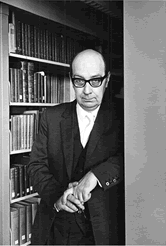Rex was a nervous and highly-strung dog who pointedly ignored my efforts to make friends with him.
Who knows, perhaps he was just choosy about his friends and regarded a poet as an unworthy type of human.
I used to pass Emma and Matt's gate each day when walking my own dogs, Rufus and Holly, and often failed to remember that behind it lurked, Rex, the Beast of Bordeaux.
Invariably the rascal would take me by surprise by hurling himself at the gate, angry-eyed and barking furiously and I'd shake like a jelly all the way home.
One dark evening not long after Rex had passed away, I was walking by his gate when it was violently shaken by a gust of wind and that same sudden alarm gripped me.
It was as though he'd lingered this side of Doggy Heaven just long enough to give me one final scare.
I hurried indoors and wrote this poem.
GHOST DOGS
Wind crashes the gate and brings to mind
Rex jumping up, black and sudden;
his frantic bark, scrabbling paws,
rips evening tranquility apart,
but tonight it is only
wind conjuring ghosts:
first Rex, fiercely unfriendly,
then, as though unleashed,
a host of other vanished dogs.
Now they run through my mind
as I trudge homeward. Each one
an absence to be grieved for.
Every one remembered.
Wind crashes the gate and brings to mind
Rex jumping up, black and sudden;
his frantic bark, scrabbling paws,
rips evening tranquility apart,
but tonight it is only
wind conjuring ghosts:
first Rex, fiercely unfriendly,
then, as though unleashed,
a host of other vanished dogs.
Now they run through my mind
as I trudge homeward. Each one
an absence to be grieved for.
Every one remembered.
The image above is not Rex but instead a Rex Lookalike. Rex himself was a great deal more handsome.













